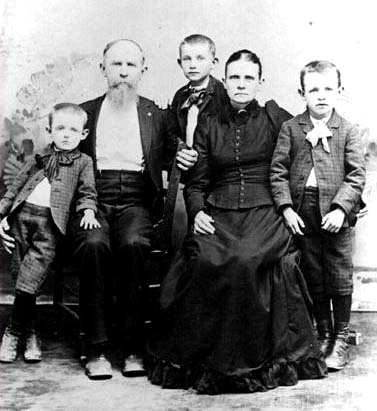A casual stroll through the Concord Masonic Cemetery will bring many family names to mind with an occasional smile or two. Not so the case with the family of James Monroe Smith (1814-1865), whose grave is the oldest in the cemetery.
James, once a very wealthy landowner and slaveholder, purchased land in the 1840s that was part of the farm where Admiral David Farragut was born. He and his wife, Cynthia Gambill Smith, raised 10 children.
Their life was one of happiness and prosperity until 1861, when the Civil War began. James and his two oldest sons, Marcus Lafayette and Francis Marion, joined the Confederate States Army. Son William Swan Smith was left at home to help take care of his mother and younger siblings.
In 1862, while overseeing the mining of saltpeter in Virginia to make ammunition to be used by General Lee’s Army of Northern Virginia, James heard that his two youngest daughters were seriously ill with cholera, and he came home to be with Cynthia. By the time he arrived, Alice had just died, and three days later little Louise succumbed.
Dirty and tired after traveling and sporting a beard, James changed out of his uniform into some old clothes and was lying on the couch to rest when Union soldiers knocked on the door. They had heard that he was in town and had come for him. Cynthia told them that the only one there was an old man who was assisting her with the death of her child. One Union soldier came into the room to investigate and recognized James Monroe. “He isn’t here,” he told the rest of the soldiers, and they left. Cynthia was grateful that at least one of the Union soldiers had a heart. The children were buried in the family plot, and James Monroe returned to Virginia.
By 1864, William Swan Smith, then 17, decided that he was old enough to fight, so he, too, joined the Confederates. When James Monroe heard that his son had left Cynthia, he went to his camp and promptly took him back home, administering a good whipping. As soon as his father left, young Swan ran off to fight for the Union Army and fought until the end of the war.
After the war, James and his two oldest sons came home to find much of their property destroyed. He and Swan were not on the best of terms. James Monroe had been warned if he came back to live here that he would be killed. In 1865, while on horseback, he was fatally shot in the back. He was buried with his two daughters in the family plot.
Because of the bad feeling toward Confederate loyalists, Mark and Francis left the area. Francis went to Middle Tennessee and became an educator, and Mark bought a farm in Roane County. Swan became a minister.
At Cynthia’s death, it was her request that she be buried at Concord and James Monroe and her two children be disinterred and moved there. And so it is, the war where brother fought brother is history. And now James Monroe, Marcus, Francis and Swan are buried just a stone’s throw away from each other. May they rest in eternal peace.
(Parts of this story are based on the book “I Remember Granny,” written by Beulah Lee Smith Prater Pratt, onetime principal of Bluegrass Elementary, about her grandmother, Cynthia Gambill Smith.)

